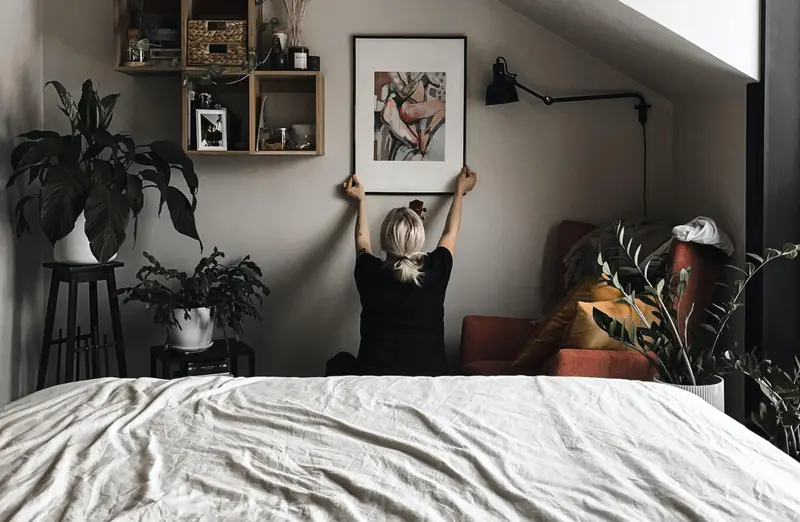
About one-third of the world’s population suffers from sleep deprivation. Sleep specialists are now concerned not only with traditional factors that lead to poor and insufficient sleep but also with those that have emerged as threats to humanity in recent decades.
Dr. Mike Dilks, a leading consultant and otolaryngologist in London, is well-versed in this topic. He believes that one of the reasons for unsatisfactory nighttime rest is the chaos in the bedroom.
The Bedroom is for Sleeping!
What does this mean? The fact is that many people today often turn their bedrooms into the central hub of their lives. They eat, read, watch TV, listen to music, work from bed, and, of course, sleep there. However, getting a good night’s sleep in such a room and lifestyle is not always possible.
The main reason for this is the clutter in the bedroom, where there’s hardly any space left due to piles of gadgets and other miscellaneous items. When the room’s owner finds themselves losing valuable hours of rest each night, it’s no surprise.
How can this problem be solved? Dr. Mike Dilks suggests removing everything from the bedroom that isn’t related to sleep.
If a person tries to fall asleep in a “room filled with TVs, coffee machines, and other devices, they won’t sleep as well as they would in an empty bedroom with just a bed.”
According to the expert, this is primarily due to the blue light emitted by many devices, which disrupts the production of melatonin (the hormone that promotes sleep). This external stimulus can also interfere with our internal clock, as reported by the Daily Mail.
The flickering lights of devices and their sounds often cause people to wake up at night. This is especially true for those who have overloaded themselves with information from gadgets before bedtime, resulting in shallow sleep.
To genuinely help oneself, one must “not live half their life in the bedroom, but use it exclusively for sleep,” Dr. Dilks added.
Sleep Deprivation Issues Tackled by Modern Otolaryngology
The expert also shared tips on combating snoring and sleep apnea (sudden and uncontrolled pauses in breathing during sleep). Dr. Dilks, who specializes in surgery to address these issues, advises paying attention to the position in which we sleep.
He states, “almost everyone snores when sleeping on their back.” Sleeping on one’s side is the simplest and most cost-effective way to avoid snoring.
To stay on one’s side throughout the night, one can sew a tennis ball into the chest pocket of their pajamas and wear them backward. If they roll onto their back during the night, they will feel discomfort and return to their original position.
Dr. Dilks recommends that patients use a sleep tracking app for a month before and after trying the tennis ball trick. By analyzing these metrics, they can assess whether their sleep has improved.
The next steps to overcoming sleep deprivation include reducing excess weight and cutting down on alcohol consumption at night. Even better is complete abstinence from alcohol.
To combat snoring, modern medicine has developed numerous effective surgical methods. Among them are laser surgery for the soft palate or tonsils. However, Mike Dilks advocates for such interventions only in extreme cases when no other attempts have yielded effective results.
